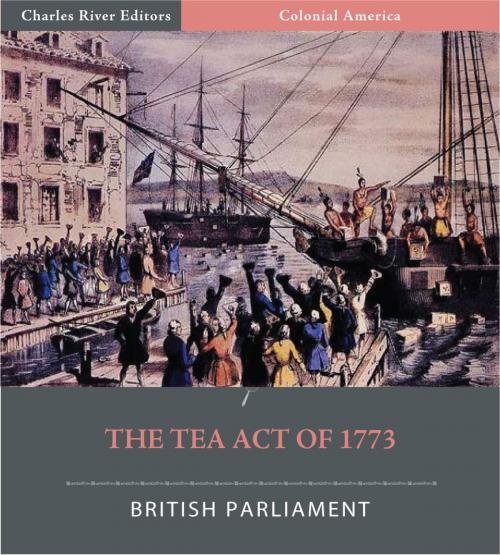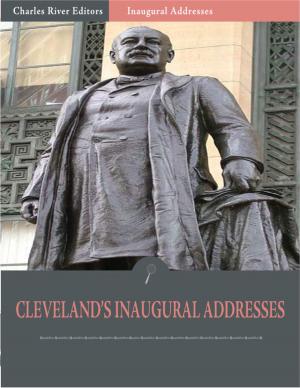The Tea Act of 1773 (Illustrated)
Nonfiction, History, Americas, United States, Colonial Period (1600-1775), Reference & Language, Law| Author: | British Parliament | ISBN: | 9781475312430 |
| Publisher: | Charles River Editors | Publication: | February 22, 2012 |
| Imprint: | Language: | English |
| Author: | British Parliament |
| ISBN: | 9781475312430 |
| Publisher: | Charles River Editors |
| Publication: | February 22, 2012 |
| Imprint: | |
| Language: | English |
One of the most famous revolutions in history, the American Revolution (1775-1783) was the political upheaval in which 13 distinct colonies in North America banded together to cast off British rule, forming the United States of America. But what brought about the Revolution? The trouble began after the Seven Years War between France and Great Britain. The Tea Act of 1773 was an Act of the Parliament of Great Britain whose objective was to undercut the price of tea smuggled into Britain's North American colonies in preference to that of the British East India Company, and thereby convince the colonists to accept Parliament's right of taxation. The act granted the Company, which had a massive surplus of tea and was in some financial difficulty, the right to directly ship its tea to North America and the right to the duty-free export of tea from Britain, although the tax imposed by the Townshend Acts and collected in the colonies remained in force. It received the royal assent on May 10, 1773.Colonists in the Thirteen Colonies recognised the implications of the act's provisions, and a coalition of merchants and artisans similar to that which had opposed the 1765 Stamp Act mobilised opposition to delivery and distribution of the tea. In many colonies successful efforts were made to prevent the tea from being landed. In Boston, this resistance culminated in the Boston Tea Party on December 16, 1773, when colonists disguised as Indians boarded tea ships anchored in the harbour and dumped their tea cargo overboard. Parliamentary reaction to this event included passage of the Coercive Acts, designed to punish Massachusetts for its resistance, and the appointment of General Thomas Gage as royal governor of Massachusetts. These actions further raised tensions that broke out into the American War of Independence in April 1775. This edition of the Tea Act of 1773 is specially formatted with illustrations of King George III, Parliament, and more.
One of the most famous revolutions in history, the American Revolution (1775-1783) was the political upheaval in which 13 distinct colonies in North America banded together to cast off British rule, forming the United States of America. But what brought about the Revolution? The trouble began after the Seven Years War between France and Great Britain. The Tea Act of 1773 was an Act of the Parliament of Great Britain whose objective was to undercut the price of tea smuggled into Britain's North American colonies in preference to that of the British East India Company, and thereby convince the colonists to accept Parliament's right of taxation. The act granted the Company, which had a massive surplus of tea and was in some financial difficulty, the right to directly ship its tea to North America and the right to the duty-free export of tea from Britain, although the tax imposed by the Townshend Acts and collected in the colonies remained in force. It received the royal assent on May 10, 1773.Colonists in the Thirteen Colonies recognised the implications of the act's provisions, and a coalition of merchants and artisans similar to that which had opposed the 1765 Stamp Act mobilised opposition to delivery and distribution of the tea. In many colonies successful efforts were made to prevent the tea from being landed. In Boston, this resistance culminated in the Boston Tea Party on December 16, 1773, when colonists disguised as Indians boarded tea ships anchored in the harbour and dumped their tea cargo overboard. Parliamentary reaction to this event included passage of the Coercive Acts, designed to punish Massachusetts for its resistance, and the appointment of General Thomas Gage as royal governor of Massachusetts. These actions further raised tensions that broke out into the American War of Independence in April 1775. This edition of the Tea Act of 1773 is specially formatted with illustrations of King George III, Parliament, and more.















